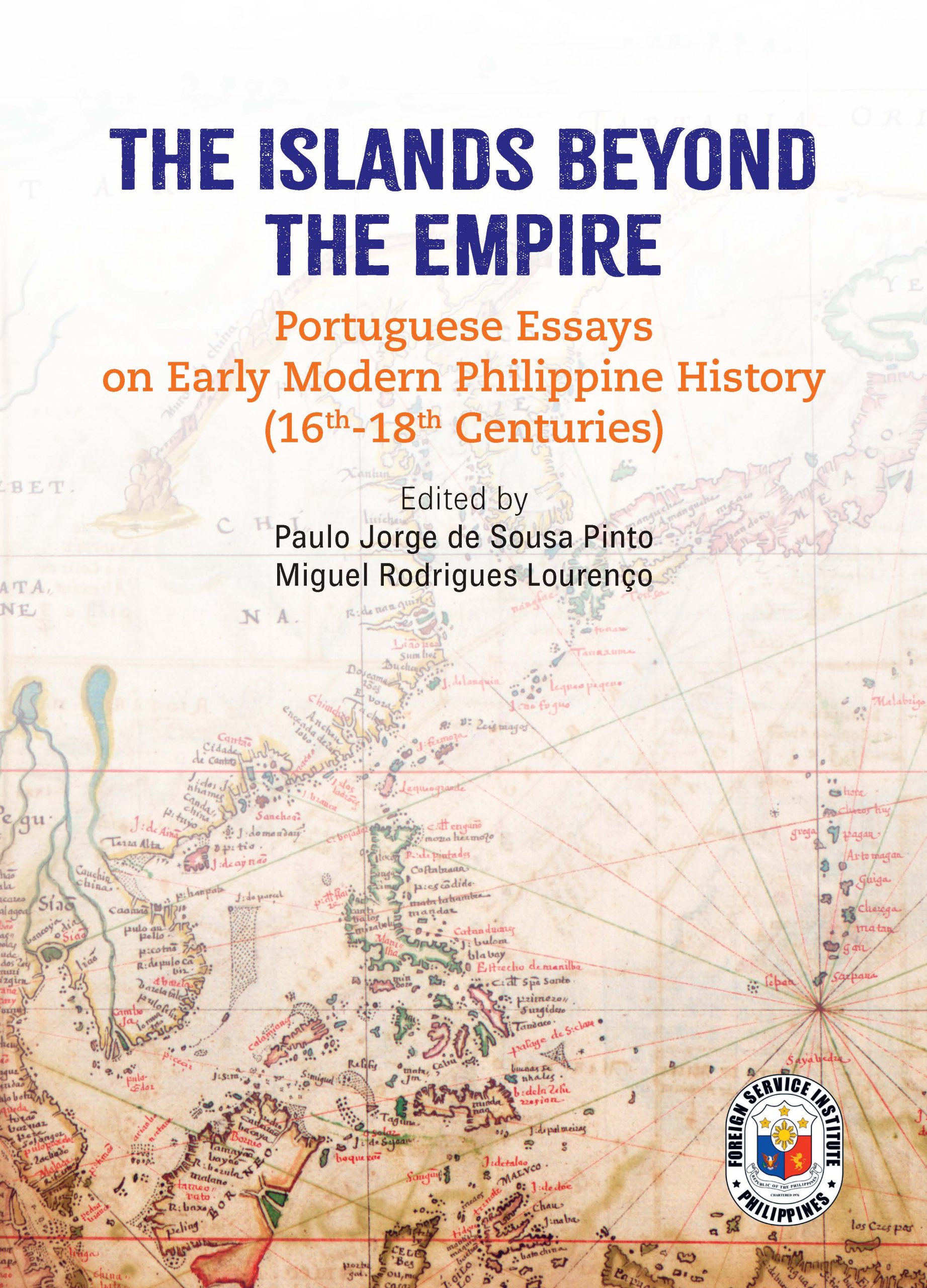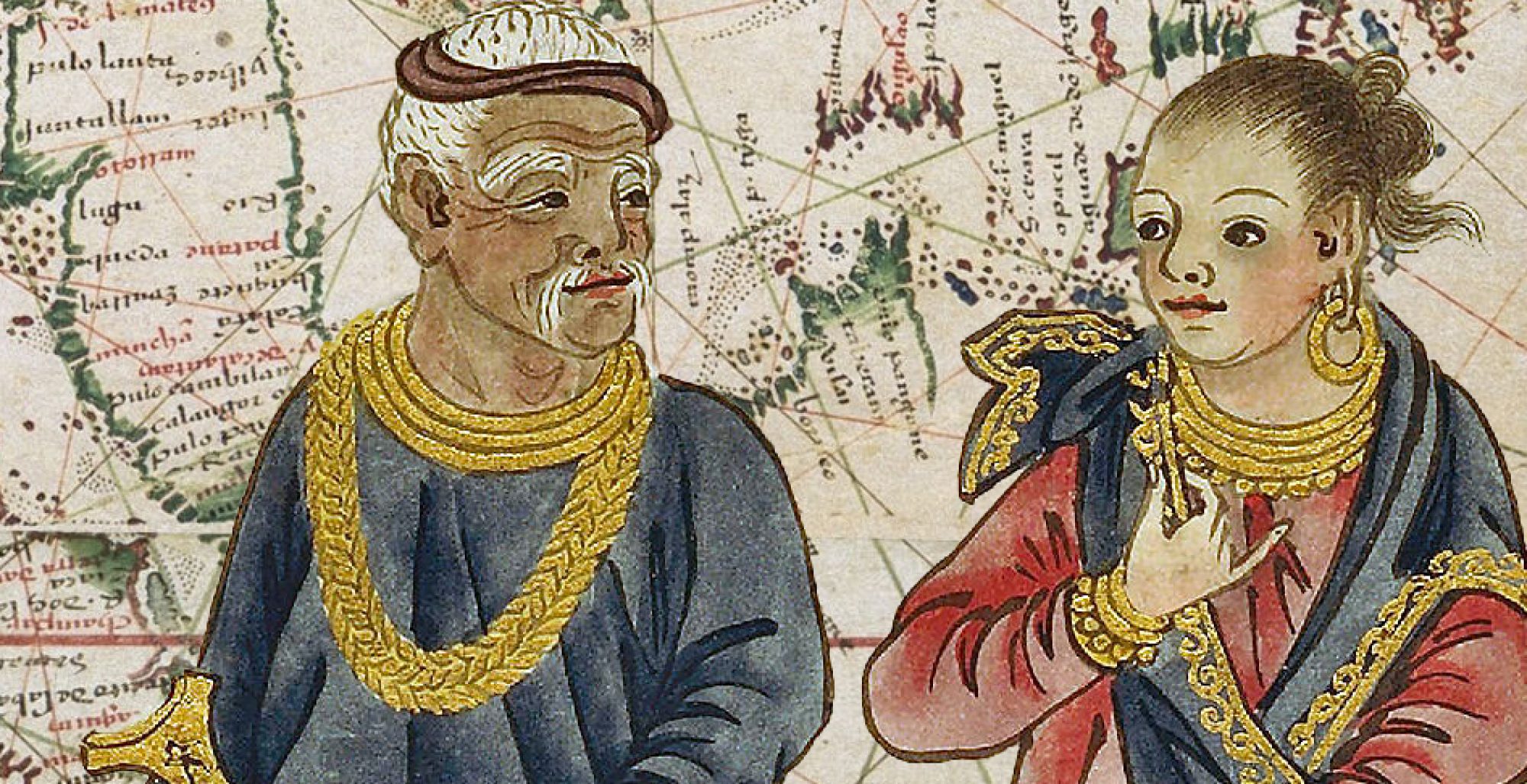
The Islands Beyond the Empire – Portuguese Essays on Early Modern Philippine History (16th-18th Centuries) is an edited volume proposed by the Working Group to the Embassy of the Philippines in Lisbon in 2019.
The book collects some of the most relevant scientific articles produced by Portuguese historiography on Early Modern Philippines (16th-18th centuries). The main purpose of The Islands Beyond the Empire is to increase the level of mutual knowledge on the shared past between the Philippines and Portugal, as well as to promote contacts between Portuguese and Filipino academics.
The volume is edited by Paulo Jorge de Sousa Pinto and Miguel Rodrigues Lourenço. It includes 18 articles and essays (some of them originally published in Portuguese and now translated into English) by 11 Portuguese scholars and researchers:
- Alexandra Curvelo – Commodities on the move. Philippines as a contact zone between East Asia and the vice-royalty of New Spain in the Early Modern Age
- Eduardo Frutuoso – Population, economy and commerce: Macao and the Philippines on the road of Iberian arbitrism in the first half of the 17th century
- Elsa Penalva – Women in Macao 1633-1644 / Poor Clares in 17th century Macao: faith, power and freedom
- Graciete Nogueira Batalha – Coincidences with Macao’s dialect in Spanish dialects of the Philippine Islands
- João Paulo Oliveira e Costa – Portuguese-Spanish rivalry in the Far East and the missionary quarrel in Japan
- José Manuel Garcia – Portugal’s relations with the Philippines according to 16th century Portuguese chroniclers / Historical relations between Macao and the Philippines: a Portuguese perspective
- Manuel Lobato – The Philippines and the Portuguese Estado da Índia in the time of the Habsburgs: tension, convergence and accommodation between the Iberian empires in Southeast Asia / The Mardicas of Ternate and the creoles of Portuguese origin in the Philippines. An interdisciplinary look at the relations between identity and language
- Maria João Ferreira – Designation issues around Chinese textiles in the Iberian heritage collections
- Miguel Rodrigues Lourenço – From St. Lazarus to the Philippines: representations of an archipelago in 16th century Iberian nautical cartography / The border between the Inquisitions of Goa and Mexico during the 16th and 17th centuries
- Paulo Jorge de Sousa Pinto – Manila, Macao and Chinese networks in South China Sea: adaptive strategies of cooperation and survival (16th-17th centuries) / Enemy at the Gates – Macao, Manila and the ‘Pinhal episode’ (end of the 16th century)
- Rui Manuel Loureiro – Macao and Manila in the context of Iberian-Dutch rivalry in the South China Sea / Traveling experiences vs. intertextuality: the description of the Philippines in Gemelli Careri’s Giro del Mondo (1699–1700) / Early European sinology – Between Macao and Manila at the end of the 16th century
The project was sponsored by the Philippine Embassy in Lisbon with the support of Senator Franklin M. Drilon. It was published by the Foreign Service Institute (Manila) in 2023. The e-book version is open access and is available here.
